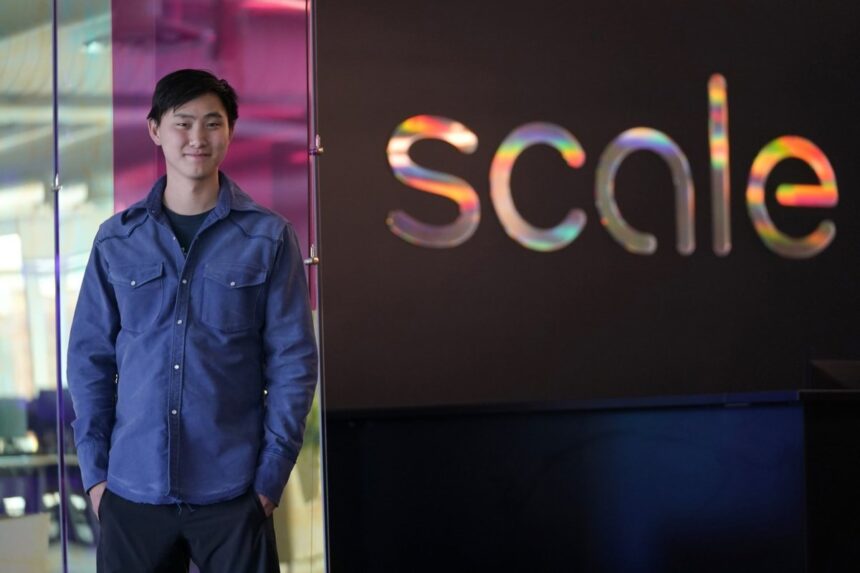In a strategic move that signals Meta’s intensifying focus on artificial intelligence development, the tech giant has announced a staggering $14.3 billion investment in AI firm Scale, while simultaneously recruiting its founder and CEO Alexander Wang to join Meta’s superintelligence team. This bold initiative underscores Meta’s determination to remain at the forefront of AI innovation amid fierce competition from industry rivals.
The deal, announced Wednesday, represents one of Meta’s most significant financial commitments to external AI expertise to date. Scale has built its reputation by providing critical data labeling and evaluation services that help train and refine AI models—essentially creating the infrastructure that allows advanced AI systems to understand and interpret the world around them.
“The pace of AI advancement demands unprecedented collaboration between visionaries and infrastructure builders,” said Mark Zuckerberg, Meta’s CEO, in a statement accompanying the announcement. “Bringing Scale’s capabilities and Alexander’s expertise into our ecosystem accelerates our path toward responsible superintelligence development.”
Wang, who founded Scale in 2016 at just 19 years old after dropping out of MIT, will join Meta while continuing to lead Scale as CEO. His dual role highlights the unusual arrangement where Meta gains both investment leverage and direct leadership input without complete acquisition.
Industry analysts view this move as a direct response to competitive pressure from OpenAI, Anthropic, and Google DeepMind, all of which have made significant strides in developing increasingly sophisticated AI models. Meta’s investment suggests the company is particularly focused on evaluation frameworks—critical systems that can accurately assess AI capabilities and limitations.
“This partnership addresses one of the fundamental challenges in advancing toward superintelligence,” explained Dr. Catherine Newsom, AI ethics researcher at the University of Toronto. “Without robust evaluation methods, we simply cannot know if the systems we’re building are truly safe, capable, or aligned with human values.”
The investment comes amid heightened regulatory scrutiny of AI development globally. Just last month, Canadian regulators announced plans to establish new oversight frameworks for advanced AI systems, joining similar initiatives in the European Union and United States.
Scale’s expertise in data labeling has proven particularly valuable for autonomous vehicle development, medical imaging analysis, and natural language processing—all fields where accuracy in AI perception directly impacts human safety. The company’s evaluation frameworks have become industry standards for determining whether AI systems are performing as expected.
For Canadian tech investors, the move signals potential opportunities in AI infrastructure and evaluation services, areas previously overshadowed by more visible generative AI applications. Toronto’s AI corridor may see increased interest as major players redirect investments toward foundations that enable superintelligence development.
Financial analysts project that Meta’s substantial investment will likely trigger similar strategic moves from competitors unwilling to cede ground in what has become an existential technology race. The question remaining for industry observers is whether these massive investments in superintelligence will ultimately deliver tangible benefits to society, or merely accelerate a high-stakes competition with unpredictable consequences.
As we witness these unprecedented financial commitments to advanced AI development, perhaps we should ask ourselves: Are we adequately preparing for the societal impacts of superintelligent systems, or are we simply focused on which company will cross the finish line first?

























